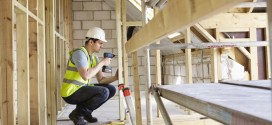After a majority vote to leave the European Union in June, the British exit, or Brexit, is making waves in the global economy.
To gain insights into what Brexit means to the U.K. and how it may impact retailers in the U.S. and Canada, Hardware Retailing interviewed Alan Hawkins of the British Independent Retailers Association and Robert Dietz, chief economist for the National Association of Home Builders (NAHB).
Experts Weigh in on Brexit
After the U.K. announced its departure from the European Union, many people in Britain felt a weight of uncertainty about the future, and business owners and customers need to have a degree of certainty to make decisions, Alan Hawkins says.
“While the EU exit vote was on the cards from the opinion polls, I suspect most commentators expected us to stay in,” Hawkins says. “Indeed, the markets rose the day before the vote on this expectation. After the initial fall, markets are now recovering.”
In the U.S., markets have already recovered and have moved on from Brexit, Robert Dietz with NAHB says. Initial worries have been thrown aside, but the longterm impact of Brexit could mean a lot for retailers, he says.
“Economically speaking, U.S. exporters are getting a little bit of a hit, but not a whole lot,” Dietz says. “My big concern, and most people share this view, is whether we’re seeing in the long run a move toward free trade. If you see lot of countries turn against free trade, that will turn against economic growth.”
As far as the home improvement and hardware industries in other countries go, Hawkins says the U.S. market likely doesn’t have much to worry about.
“The U.S. market is so big relative to the U.K. and even Europe, so I can’t see any big knock-on effects,” Hawkins says. “Some of our bigger players may be vulnerable to take over as a strong dollar makes our companies appear cheap. I come from the independent sector, so sleep a little easier on this point.”
Because the American dollar is stronger, it will be a good thing for builders in the U.S., Dietz says.
“The value of the dollar going up may make it difficult for foreign buyers, but then U.S. housing becomes more attractive,” Dietz says. “It is a good thing for builders when the value of a dollar goes up because it becomes more affordable with lower building materials prices.”
As independent retailers take a closer look at Brexit, both in the U.K. and in other countries, Hawkins urges them to use their trade associations to get help addressing their concerns.
“I suggest, as far as possible, retailers carry on as normal,” Hawkins says. “Spread positive messages to your customers. As one retailer said to me, whatever the problem, ultimately the biggest single factor on a good or bad day is the weather. I am sure he was right. The best thing is to join your trade association and get all the help we can give you and keep you in touch with others going through exactly the same issues. Together, we have the answers.”
 Hardware Retailing The Industry's Source for Insights and Information
Hardware Retailing The Industry's Source for Insights and Information






